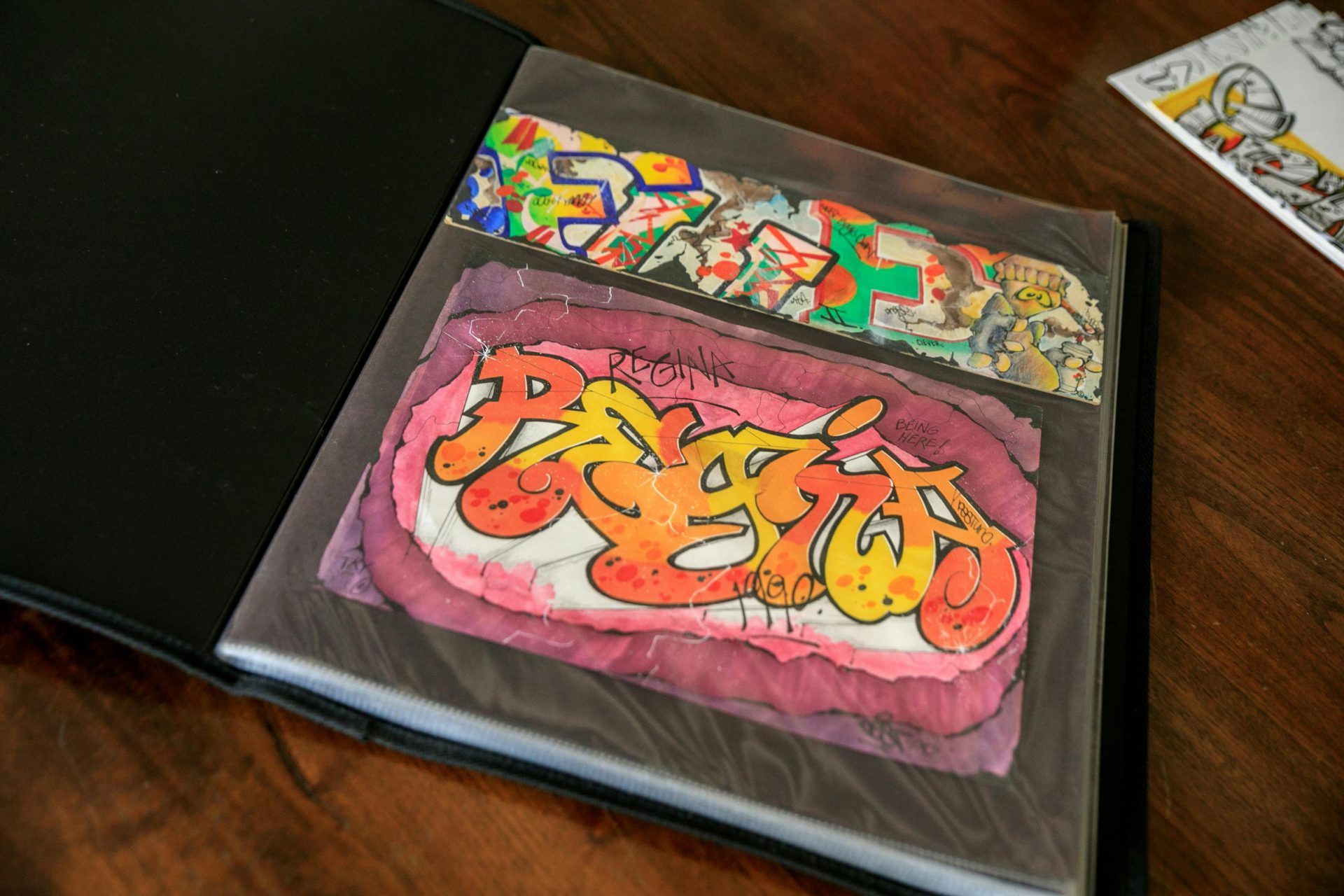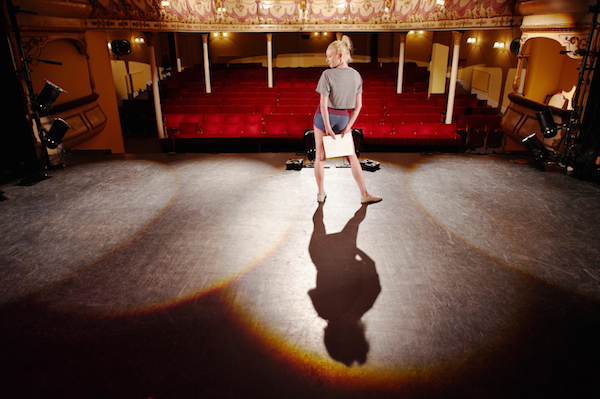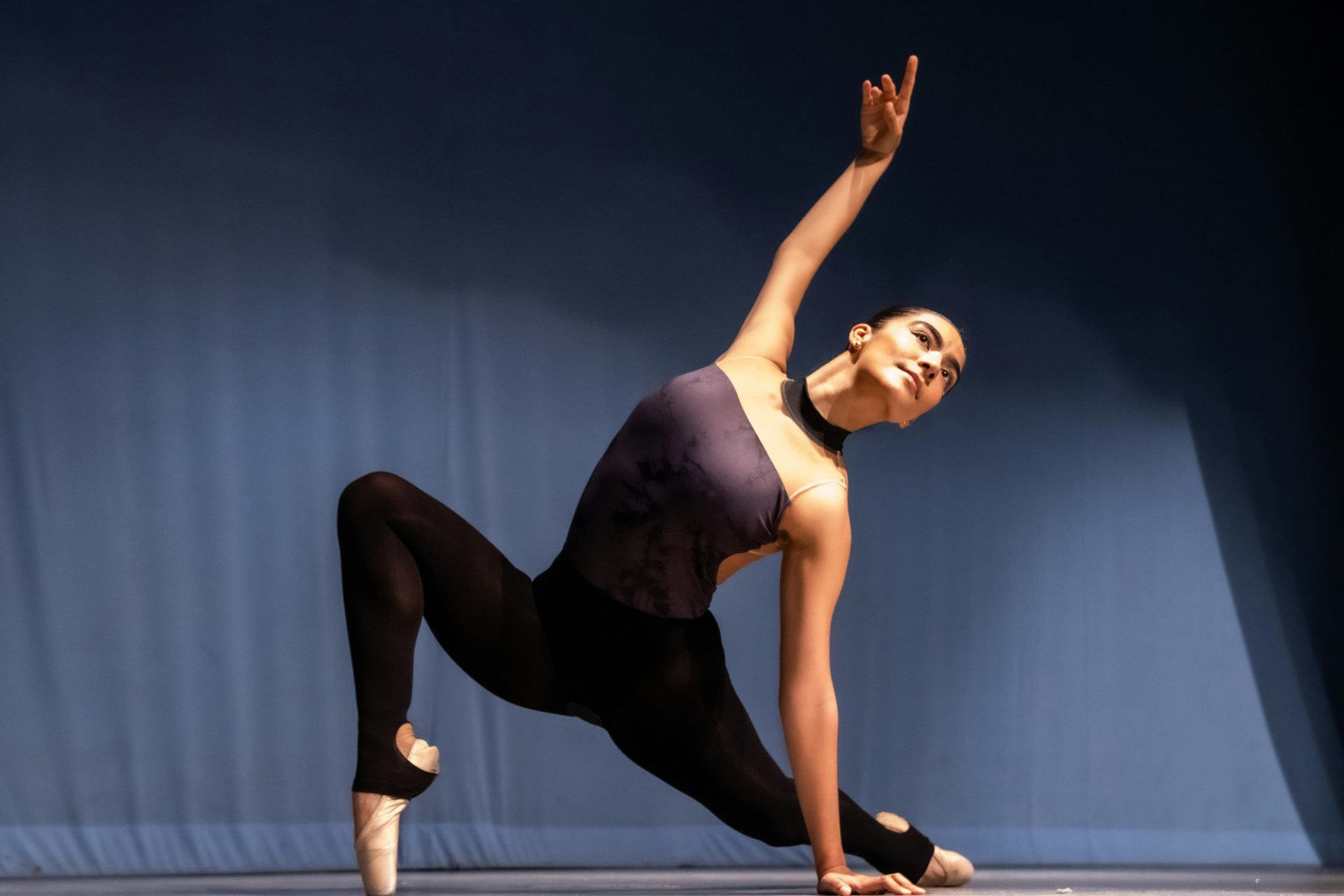
The College Audition Room: What Actually Happens?
Posted September 24, 2015, 12:00 pm by
If you are performing arts student, you've been preparing for months for this moment! You have the perfect set of songs picked out, you love your monologue, your headshot and resume are assembled correctly and you are ready to showcase all that you’ve got! As you sit in the holding room patiently waiting for your name to be called, it hits you: What exactly is going to happen once I am actually inside that audition room?
Big breath! Here are some things you can expect:
Be prepared to slate
For starters, you should be completely confident slating your audition material.
What’s “slate” you ask?
A slate is an introduction of you and your pieces to the room. Once you enter the room, the auditors may chat with you a bit – but if not, that should be your cue to go ahead and introduce yourself.
Make eye contact with the auditors as you slate and take your time. Here’s an example: “Hi! I’m Sarah Smith and my first monologue is from ‘The Best Play Ever’ by Sally Anderson.” Then you would take a big breath, pick a spot on the wall to talk to (never look at the auditors for your monologue unless specifically asked to) and begin your piece!
Also, one important note: make sure you are pronouncing your playwrights/composers/authors names correctly! Chances are the person in the room will know the correct pronunciation and you don’t want to slate incorrectly!
[Are you pursuing a life in the arts? Get our latest
Guide to Performing & Visual Arts Colleges.]
Adjustments
Don’t be alarmed if the people auditioning you ask for you to go back and try your audition piece a different way! It’s most certainly not because you did anything wrong.
This is their chance to see what type of student you are and how you take direction. They may give you a silly adjustment - like doing jumping jacks during your monologue - to see if you are relaxed and willing to go outside your comfort zone.
Alternatively, they could simply direct your pieces in a different way to see how well you handle taking notes. A positive attitude is crucial for taking adjustments: No matter what they throw your way, try to receive the direction happily and do your best to conquer the note. It’s your chance to show them what type of student you will be if you are with them for the next four years.
Questions
Each audition room varies drastically. You may get an auditor who remains relatively silent from start to finish of your audition or you might have a person who is especially chatty. Either way, you should be prepared to not only audition but also be able to talk about yourself! Some common questions that might come up in the room, include:
-
Why did you pick your monologues and songs?
-
Why would you be a good fit for this program?
-
What’s your favorite book? Movie? Musical?
Truthfully, being able to talk about YOU sometimes can be the hardest part of the audition. It’s much easier to play a character than to be yourself in the audition room - am I right, performers? So, make sure to practice interview answers in front of Mom/Dad/your neighbor/anyone that will listen before the big day.
So, be prepared and most importantly have fun! Auditions are over in the blink of an eye. Break legs!
Blog Categories
- Career Advice
- College Admissions
- Colleges & Universities
- Financial Aid and Scholarships
- For Counselors
- For Parents
- For Students
- Gap Years
- Mental Health and Wellness
- Online Learning
- Performing and Visual Arts
- STEM Majors and More
- Summer Programs
- Teen Volunteering
- Trade & Vocational Schools
- Tutoring & Test Prep

Organization with listings on TeenLife? Login here
Register for Free
We’re here to help you find your best-fit teen-centered academic and enrichment opportunities.
Forgot Password
"*" indicates required fields








